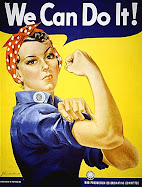In discussing racism and sexism, we came to the realization that to be black is to be male and to be female is to be white. In this framework, the black female is left out. We see evidence of other groups being left out as well when we study other structures of oppression. Often within oppressed groups, hierarchies and power dynamics are created such that those in power in a sense define the entire group.
For instance, consider homophobia as a structure of oppression. When I think of homophobia, I often think of the victim as a white male. This is probably partially because often the images that I encounter of victims who are speaking out against the system are white males. For a variety of reasons, these individuals have the power to define the group’s identity and the group’s goals. In recent years, a major platform for this group has been marriage rights. However, this is not recognized by every person within the homosexual community as the most important or pressing matter for the group. For the young Asian gay male who is not considering marriage, but instead wants the ability to hold hands with his significant other, protection is a much more important matter. Yet, his concerns may be swallowed up by the group. Furthermore, those with power and the capital have the ability to define the most important matter. Many people recognize that these hierarchies within oppressed groups create an unfair and unjust system. How then do we work to ensure that every person feels that his or her needs are met in the group? To get to each individuals unique experience, further divisions are necessary, but where do the divisions stop?
In my naivety, I would like to believe that an oppressed group would be where one could find the most solidarity and concern for each individual’s well-being. However, I now realize that the structure of oppression creates competition amongst the oppressed. The oppressed person must compete to have his or her concerns heard and desires met by the oppressor. In this regard, each oppressed person might naturally feel that his or her demands are more important than the next person’s. However, my hope in the future is that oppressed people do not feel pressure to rank their experiences being oppressed. Instead, the oppressor will recognize and feel shame that he or she is oppressing and cease oppressing. Until then, I hope that a culture of solidarity, instead of competition can be created. Such that oppressed people are able to go to other oppressed people and find strength that they are not alone.
Monday, March 8, 2010
Subscribe to:
Post Comments (Atom)

Maybe the fact that there are hierarchies within oppressed groups says something about us as people: instead of bonding together through common suffering, and beyond "competing" to have different demands heard, oppressed people seek to assert their power in other ways over those who are even more disenfranchised. For example, in the social hierarchy, white women are below white men; yet, (not so much now as in past decades) white women still treat both black women and men badly, even though it should be obvious that black women are just as or more oppressed as any other women, and black men are oppressed just as much in a different way. Maybe it's something of an attitude like "He may have power over me, but I can still exercise my power over these people because they are inferior." Whether these attitudes are part of human nature or the climate we have created for ourselves is unclear; however, these types of attitudes exist in all types of hierarchies, not just those involving race and gender. I realize this is a pretty dark musing, but worth considering if we're discussing why oppressed people can't all just get along.
ReplyDeleteCiara, I agree wholeheartedly with you in a hope that oppression will not become a game of who is more oppressed than whom, but it is also an issue of thick and transparent, is it not? And it is in realizing that, as the thick person in the group, you have to struggle against the transparent mindset that oppresses the thick and bring awareness to the transparent? It just seems like we cannot ignore that there truly is a hierarchy to suffering and we must be cognizant of how that relationship affects the roles of power and who determines truth in a group.
ReplyDelete